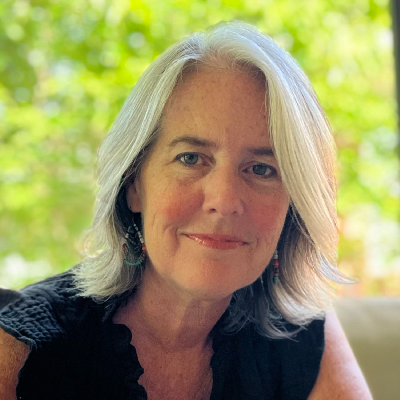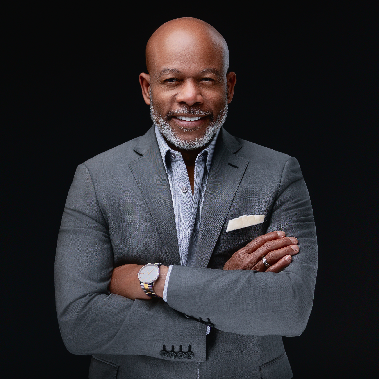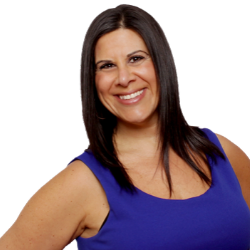
What To Say To Get Referrals: Reaction > Evaluate
Think about a potential client who is thinking of changing providers in your classification.
Set the scene for us – pick one reason why they are considering a change.
Now: what question should they ask?
Give just one question, then share one possible answer and tell us how they should interpret the response.
Answer for evaluation.

Response from Louis Agudo
from the Roswell 400 Team
Sonya has been with the same broker for 5 years helping her insure her family. She has been with Cigna, but her broker wanted her to switch to Anthem. The problem was the doctors for her family were not in Anthem. The broker said she could find new doctors. Sonya was not happy with this response.
The question she asked me was, what companies do you represent? As an independent broker, I represent all the companies on Georgia Access Exchange. The reason is, not one size fits all and I want to make sure that my clients get to see the doctors and go to the facilities they want to go to.
She was happy to know that I listen to her concerns and can enroll her in the plan that makes sense to her.

Response from Wendy Kinney
from the PowerCore Team
When I'm speaking with someone who is a Member of another close-contact network, and thinking of leaving that group to join PowerCore, my first question is:
- How long have you been a member?
If it's less than 3 years they should stay.
There are three time markers for a jump in referrals: 11 months, 18 months, and 3 years.
Ask any Member with a 5year pin - the good stuff really started to snowball at 3 years.
IF, however, there are things about the group that just do not fit for them, then it's a sunk cost, and they should move on.
In my mind it's like trying on a pair of jeans.
Not every pair fits every body.
No matter how much I like the style, if the jeans don't fit, I'm not buying them. And if I do buy them, I'm not wearing them.
So - make the change.
This is why PowerCore offers two complimentary visits - most people have a pretty good notion in that time whether or not the structure is a fit.
And why everyone begins with a 90-day membership so they can evaluate, and so the Team can evaluate fit.

Response from Holly Neumann
from the Candler Park Team
POTENTIAL CLIENT: Small business owner—Jenna—runs a boutique fitness studio. She's had the same web support agency for 3 years. They did an okay job at first, but lately? Communication has become almost nonexistent. Her site went down and it took days to get a response—after two emails, a voicemail, and a support ticket. She’s frustrated. She’s losing confidence. She’s wondering if it’s time to switch.
REASON CONSIDERING CHANGE: Unreliable communication and slow response time when issues arise.
WHAT QUESTION SHOULD SHE ASK: “If something on my site breaks or goes down, how quickly will you respond—and who will I be talking to?”
POSSIBLE ANSWER: “We usually respond within 24–48 hours. You'll submit a ticket through our support portal, and someone from our team will get back to you.”
How Jenna Should Interpret That Response: Red flag.
- While 24–48 hours might sound reasonable in theory, if your site is down, that's a long time to wait—especially if it’s affecting your ability to serve customers or make sales.
- “Someone from our team” is vague and impersonal—who exactly is responsible for helping her? Is it someone she’ll build a relationship with, or will she be explaining her business from scratch every time?
What She Should Be Looking For Instead:
- A clear commitment to fast response times (ideally same-day for urgent issues)
- A real point of contact (not just a faceless team or ticket system)
- And a sense that her business matters to the person supporting it.
I usually know there are issues before my clients do - especially when a site is down. And I answer the phone and respond to emails quickly - same day during business hours for non-emergency and within minutes if it’s an emergency.

Response from Saurel Quettan
from the Candler Park Team
Many of my potential clients are corporate employees who’s done everything right, climbed the ladder, played the game, but still feels stuck. Their dream? Start a business and finally build something of their own.
The question they should ask?
“How will our work together be tailored to my specific challenges and goals?”
One strong answer:
“Our first step is a 45-minute discovery session to uncover what’s really in the way, then we co-create a path forward that’s unique to your business, not pulled from a template.”
How they should interpret that:
If a coach leads with curiosity, not a checklist, that’s a green flag. Coaching should feel like strategy with your name on it not someone else's TED Talk in disguise.

Response from Tom Wallace
from the Peachtree City Team
Setting The Scene:
When someone is thinking of making a change, they may have realized the coach is simply not a good fit for them (because of personality, etc.)
The Question to Ask:
How do you work with those you coach?
Possible Answer:
I listen to my client's situations and first evaluate if I'm the best coach for them. We then talk about what it will look like working with me and answer any questions or concerns. If I'm not the best coach to help them given their situation, I have a process to get them matched with the right coach.
How to Evaluate:
They can determine if they are comfortable with my style of coaching and feel comfortable I can get them the right coach for them if it isn't me.
Response from Christopher Lyboldt
from the Roswell 400 Team
Setting the Scene:
A family is frustrated because their current elder care advisor only provides a list of senior living options without offering guidance on how to make the best choice. They feel overwhelmed and uncertain.
The Question to Ask:
"How do you help families compare senior living options beyond just providing a list?"
One Possible Answer:
"I take the time to understand your loved one’s care needs, budget, and personal preferences. I personally visit communities, guide you through the decision-making process, and advocate for your family to ensure the best fit."
How to Interpret This Response:
A strong advisor doesn’t just hand over options—they provide insights, support, and advocacy. If the response is vague or transactional, the family may end up navigating a complex decision alone. A good advisor empowers them with clarity and confidence.

Response from Nicole Comis
Scene: High-achieving professional who's been working with a coach. They are achieving goals, but deep down, they feel something is missing. They’re not experiencing the changes they hoped for—just external wins. No real change in themselves. No breakthroughs. No mindset shifts.
They’re tired of working so hard for their results. And they’re starting to wonder, “Why does success feel so freaking hard—and why am I still unfulfilled even though I’m successful?”
They can ask: “How is your coaching different from what I’ve experienced before?”
And here’s my answer: I specialize in transformational coaching that goes deeper than goals. I help clients uncover unconscious patterns—like self-doubt, perfectionism, or people-pleasing that’s sabotaging their success. It’s not just about achieving more, it’s about becoming more aligned, confident, and fulfilled.
This question matters—because it’s the difference between achieving another goal and changing someone’s life.

Response from Heidi Franz
Scene: A small business owner is frustrated that their current bookkeeper takes too long to deliver financial statements and never sits down to explain them. They’re considering making a change.
The Question They Should Ask: “How frequently do you provide financial updates, and do you schedule time to review them with me?”
One Possible Answer: “I prepare monthly reports within seven business days of month-end and meet with you—either in person or virtually—to walk through the numbers and answer questions.”
How They Should Interpret the Response: If the new provider sets clear timelines and offers a review session, it indicates a proactive approach. They won’t just hand over figures; they’ll collaborate to ensure you understand your finances and can make informed decisions. That’s a strong sign you’re getting more value than just data entry.

Response from Melissa Moss CFP®
from the Towne Lake Team
A potential client is growing uneasy because they haven’t heard from their advisor in over a year—not even a check-in or market update. They’ve left a few voicemails, but it always feels like they’re chasing the advisor for basic information. They're starting to wonder: Is anyone actually paying attention to my money?
The Question They Should Ask:
“How often will I hear from you? And how will I know if something needs to change?”
One Possible Answer:
"If you ever need anything, just reach out."
How to Interpret It:
That response sounds fine on the surface, but it puts the responsibility on you to initiate the relationship. A better experience means your advisor is proactive: checking in when markets shift, when opportunities arise, or when life changes happen. At my firm, we start with a clear plan and a thoughtful investment strategy tailored to your goals and timeline. We review no less than annually, and I stay in touch regularly through personal outreach, a weekly email newsletter, and my podcast—so you never feel in the dark or forgotten.

Response from Paul Urfi
from the Towne Lake Team
When someone is thinking of changing pet groomers, it’s usually not about the haircut. It’s about how their pet was treated.
So here’s what they should ask:
“Will my pet be groomed one-on-one, or will they be around other dogs the whole time?”
If the answer is:
“Well, we usually have several dogs at once but keep them separate in crates” —
That means your dog could be in a loud, overstimulating environment for hours. Even a quick haircut can become a stressful experience.
But if the groomer says:
“We only groom one pet at a time — no crates, no chaos, just calm, focused care” —
That’s a green flag. It shows they value the emotional health of your pet just as much as the physical appearance.
I’m Paul Urfi with Zoomin Groomin — we groom pets the way you wish every service would: with care, calm, and complete focus.
